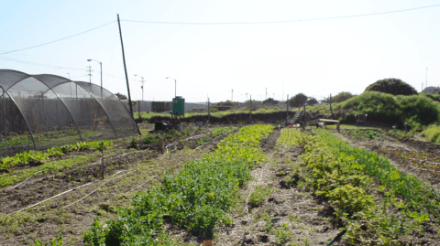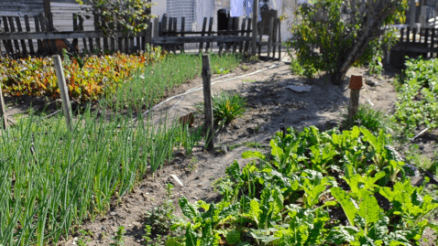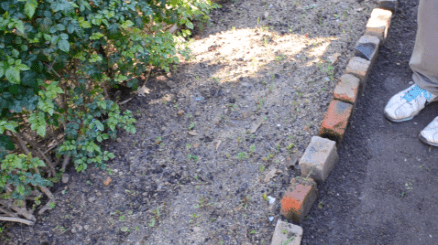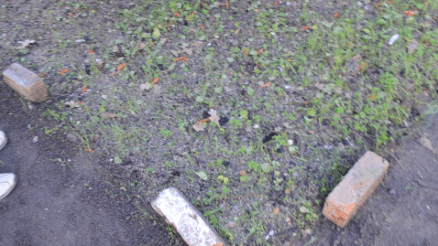Maria Polzin
Community Systems Strengthening for Health (CSS)
Cape Town, South Africa
When I was told that CSS trains individuals on food and nutrition, I imagined that the majority of the information would focus on aspects such as what a nutritious diet looks like and food’s connection to noncommunicable diseases. While the programs do touch on these important topics, the bulk of the lessons are actually about how to start and maintain a food garden. This is part of increasing efforts by non-profit organizations and government agencies to promote food gardens as a means of addressing food insecurity. Because of this focus on growing one’s own food, my work largely explored individual’s relationships with food in the context of their home and/or community gardens, which has inevitably required me to ask the question: can food gardens sustainably improve food security and better community health?
I’ll start with what I found to be the positives of food gardening:
- Empowerment: Almost every participant with whom I spoke said that gardening made them feel good––feel happy. Many individuals stated that working in their garden gives them peace of mind and that they feel satisfaction and joy when they harvest their own food.
- Cost reduction: Every participant said that gardening has helped them reduce costs because the money they save from decreased spendings on groceries far outweighs the money they have to spend on seeds and the occasional supplies.
- Form of income: For some participants, their gardens have become a means of income because they can sell their excess fruits and vegetables to their community, and in some cases, to formal farmers markets and grocery stores. This is especially true for those that are retired or unemployed and have time to invest in the health and expansion of their gardens.
- Strengthening community: Almost every participant expressed that gardening has brought them closer to their communities. When individuals are not selling their excess food, many choose to give it for free to their neighbors, local children, and soup kitchens.
- Education: All of the community members learned more about health and nutrition, and the majority of those interviewed said that having their own garden and understanding where their food comes from has actually changed their diets for the better. Many have or intend to spread this education to the youth in their community.
- Health: Education has led to an improvement of diets, and it is safe to assume this has led to an increase in health, as all of the participants are also trained on food’s connection to noncommunicable diseases. Furthermore, most participants expressed excitement about their food being organic and believe that eating organically will have a direct positive impact on their health.
Food gardening does, however, have its limitations:
- Sustainability: Cape Town recently experienced a severe drought, and all of the CSS participants were negatively impacted, with many having to shut down their gardens all together. Without funding to access boreholes and other technology that help farmers/gardeners withstand natural disasters, food gardens are not a sustainable solution to food security, especially for poor people. This factor does not necessarily outweigh all of the benefits food gardening presents, but it points to a need for better funding of these individuals’ initiatives.
- Not a panacea: It would be dangerous to consider food gardening the sole solution to hunger, obesity, and malnutrition. These issues are too rampant to be solved through small gardens, so there simultaneously needs to be more efforts to strengthen smallholder farmers, increase household incomes, and educate people on nutrition and health.
- Not only for poor people: Food gardens should not be understood as an activity for poor people. When something is stigmatized as such, it de-incentivizes people to get involved because they do not want to be seen as poor, due to social and cultural norms. Rather, food gardening should be seen as an exciting opportunity for everyone from all classes to form a better relationship with their food and create a more healthy and sustainable community at large.
Based on these observations, I conclude that food gardening is a viable option to better realize the right to food, and by allowing individuals more autonomy over their food and food systems, gardening strengthens minds and communities in ways that cannot be numericized. However, food gardening should not be seen as a panacea to food insecurity, and in order for gardens to be sustainable, they need to receive more support from non-profit organizations and government agencies.
Below are screenshots from my documentary featuring the garden of an individual who has received extensive assistance from Cape Town’s Department of Agriculture, as well as a group of community members that just started their own garden with a little bit of assistance from a non-profit organization.



